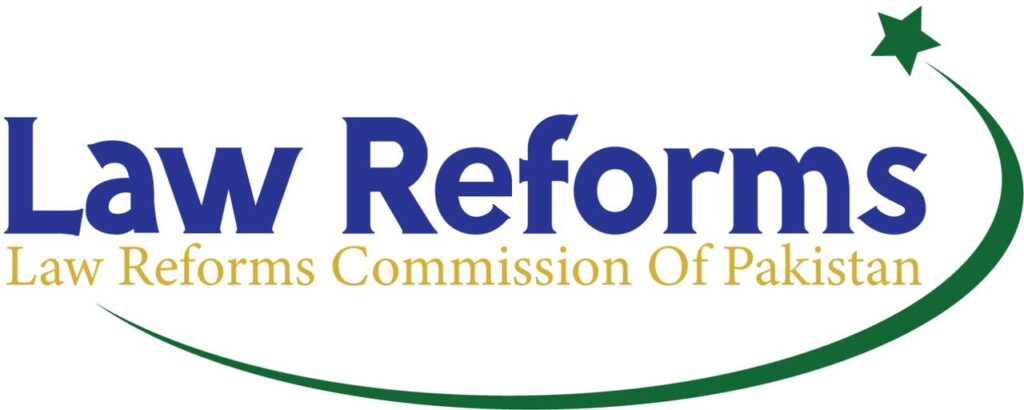With the current system of life-long general bar licenses, with no future CPDs, we are creating a bundle of Clarks or best paralegals, who simply don’t want to study further let alone further research the legal developments.
A Robust, Just, and Delivering justice system is considered the backbone of any progressive and prosperous society. With the current data in hand, the need for reforms in legal education and licensing in Pakistan is evident from the WJP Rule of Law Index 2024 report issued in January 2024 wherein Pakistan’s position stands at 130 out of 142 League of Nations.
To address continuous deterioration, serious structural reforms in Legal Education and Bar Licensing are need of the hour, including outdated and irrelevant curricula, slag faculty, absence of mentoring, lack of emphasis on jurisprudence, ineffective Vocation Training opportunities, life-long license with no mandatory annual CPDs, patchy local legal literature, inadequate infrastructure, and limited access to legal resources. For a competent bar, a professional fraternity with legal acumen and zest for continuous legal reforms is considered the backbone for the deliverance of the rule of law. While having these missing basic ingredients, no doubt we have an ineffective non-professional bar, and hence a non-delivering justice system.
Pakistani Airstrikes Target Terrorist Hideouts in Afghanistan; Retaliation for Deadly Attack
Those who argue that the existing curriculum, although outdated, has produced competent legal professionals in the past and that practical training opportunities, infrastructure, and access to legal resources are much improved compared to the inception of Pakistan, definitely are living in a fool’s paradise and can’t comprehend that it is the very reason of our present degraded justice system, wherein structural judicial reforms are missing and only cosmetic attempts to fix the system used so far. Furthermore, opponents of legal education reforms have long argued that the proposed changes are costly and time-consuming, with uncertain outcomes, and lack comprehension that without change we will remain in the current quagmire.
Their argument that the traditional approach to legal education has its merits and should not be discarded in favor of untested methods, needs to know that these reforms (changes) have already been opted for by the modernized world and that’s the very reason for their being at the top of the WJP Rule of Law Index.
Those who argue that the existing curriculum, although outdated, has produced competent legal professionals in the past and that practical training opportunities, infrastructure, and access to legal resources are much improved compared to the inception of Pakistan, definitely are living in a fool’s paradise and can’t comprehend that it is the very reason of our present degraded justice system, wherein structural judicial reforms are missing and only cosmetic attempts to fix the system used so far
Finally, there may be concerns and the potential resistance to change within existing legal academia and the broader legal community, who simply are the ones who give no heed to the motherland, its progression, or its degraded position in the League of the nation, rather their own personal beneficial gains and power of law fraternity are the only priorities before them. It is important to understand that these opposing arguments are the ones that hinder the legal education reforms in Pakistan and cannot weigh the potential benefits of implementing comprehensive changes. With their mafia mindset, they know that they will be eradicated in the Rule of Law law-delivering nation.
Implementing Legal Education Reforms in Pakistan
Reforms in legal education are extremely necessary to ensure that students receive comprehensive and practical training, have access to relevant legal resources, and are equipped with the skills. Implementing legal education reforms in Pakistan requires a comprehensive approach that involves collaboration among stakeholders, including legal academia, HEC, bar councils, judiciary, and other government bodies. This collaboration is necessary to chalk, identify, and address the specific challenges in the current non-delivering legal education system, develop relevant curricula, provide practical training opportunities, improve infrastructure, and ensure access to legal resources.
Furthermore, it is the need of the hour to revisit our current structure of curriculum wherein currently we teach statutes at the LLB and LLM level rather than Jurisprudence of law, resulting, in producing ‘clerks’ or at best paralegals rather than lawmen and jurists. Statutes shall have nothing to do with academic degrees, they are purely skills subjects that need to be placed in subsequent post-grad Vocational-Stage degrees for those who intend to continue practicing in bar as a profession. LLB and LLM shall remain pure academic degrees (critical analysis) to provoke Jurisprudence of law (theory of law) and to provoke future law research at doctorate level. Pakistan is one of the only few countries wherein legal education is considered for the one who can’t secure admission into other mainstream university disciplines, this needs serious review.
Implementing Bar Reforms in Pakistan
It is important to allocate sufficient resources and establish appropriate mechanisms for monitoring and evaluating the impact of the reforms. Herein the current PBC needs to be structurally reformed, which as a subsidiary shall create an internal Bar Standards Board (BSB) and not the current acoustic legal education committee system. The BSB shall be the authority to regulate legal education and licensing without any external political or law fraternity pressure from numerous Bar Association mafia. It has been repeatedly observed that these Associations are the root cause of fake licenses, hooliganism in courts, and strikes wherein deprive rights of the litigants for speedy justice. Clause 6 (3) of the Bar Enrollment Process therefore needs to be implemented with immediate effect, which mandates every applicant of the bar to join an association within 30 days of licensing. This in itself violates the Constitution of Pakistan Article 17 (Right of Association), wherein to join or not to join any association is a fundamental right of every person and can’t be enforced upon by any external pressure. PBC or all its subsidiary regional regulatory bodies have no right to force someone to join an association, the purpose of which seems clear, to create and protect the Association Mafia in the legal system of Pakistan and hence evade the rule of law.
Legal Education needs to be segregated into three stages;
- Academic Training
- Vocational Training
- Pupillage Training
All these stages need to be strictly regulated by the Bar Regulatory Authority (PBC).
Academic Stage is a fundamental right of every citizen where the Jurisprudence of Law shall be the core of all syllabus discussion. Critical debate for the purpose, history, and philosophy of law shall be a constituent of this academic stage. Every citizen shall have access to law education who qualifies for admission requirements and has a genuine interest in exploring the basis of law.
This shall continue for the Post-grad and research stage who are interested in the study and research of law. But for those who want to opt for law as a practicing profession beyond this stage, completely strict criteria need to be enforced to attain professional skills of advocacy and qualify to be a quality lawman/woman with the acumen of law and advocacy. It is not the inherent right of every Hook and Harry who attains current shabby LLB degrees, with zero knowledge of the theory of law, let alone critical expertise, to have a bar license. This needs serious review.
The Vocational Stage again shall be strictly regulated by the Bar Standards Board (BSB) with a Post-Grad Bar degree standard curriculum, which shall constitute Statutes, Legal Procedures, Advocacy, Presentation Skills, and Ethics. The absence of this particular stage in Pakistan is the reason that bar freshers today lack even the basic standard of being an advocate. Though an academic law degree is authorized by most universities, the Vocational Stage shall be strictly authorized to select few who meet the highest standards set by the BSB. In the absence of this enforcement, we have witnessed that an ineffective, unskilled, and uneducated lot is entering the bar.
The Pupillage stage, like all modern world, shall be enforced by the PBC strictly keeping in mind the ‘demand and supply principle’ for that particular year. Currently, we have lawyers sitting in district courts with ‘bhattas’ (stools) more like fish sellers with no market. This is the level we have created of the most esteemed and competitive profession in the world. Has current PBC ever accessed the number of lawyers needed for the Pakistan legal system..??
The Pupillage stage shall be strictly authorized to the supervisory stage chambers only, those who are prevented, trained for pupillage syllabus content, and have the ability to mentor the bar freshers for a minimum of two sessions. The pupilage stage shall complete set manuals prescribed by the BSB upon only which ‘Call to the Bar’ be extended. Furthermore, these authorized Chambers shall also compensate their pupils adequately with a minimum honorable set standard of remuneration.
Implementing Licencing Reforms in Pakistan
With the current system of life-long general bar licenses, with no future CPDs, we are creating a bundle of Clarks or best paralegals, who simply don’t want to study further let alone further research the legal developments. It is said that ‘from the depth of oceans to the height of the universe and in-between is all law’. How can a single soul be an expert of all law without a ‘general practicing license’? I herein recall the saying of Lord Denning’s meeting once to me while waiting for the flight back to London from JFK when I asked him what he says about law, and I herein quote his reply to me. “ Oo I need four more lives to know what law is”.
This was lord Denning, the greatest jurist of the 20th century, replying to me at the age of 99 in 1998. How come duffers in law today say that are law experts…!! With multiple branches of law, the modern world only issues annual practicing licenses with 1, 2, or max 3 practice areas (seniority is the mechanism to attain 3 areas max in practicing license), and is subjected to renewal only under strict further CPDs, last years performance before the courts, and strict ethics compliance. The absence of all these in Pakistan means we lack subject area specialists and have only unregulated general practitioners.
We must not forget that this bar is the one that later elevates to the benches, and if the quality of the bar is in shambles, the bench is bound to be in the same state we currently are.
Summing up all, until we are not ready to overhaul and implement structural reforms to our legal education system and bar, with the legal landscape of the modern world, we can only dream of a robust, just, and delivering rule-of-law country.
By Dr. Ahsan Rajput ~ The writer is a prominent scholar of Law (a jurist) and fellow of the University of Cambridge.
This article was Published on 27th March 2024 in THE ISLAMABAD TELEGRAPH https://theislamabadtelegraph.com/2024/03/transforming-legal-education-licensing-a-blueprint-for-rule-of-law-in-pakistan/




